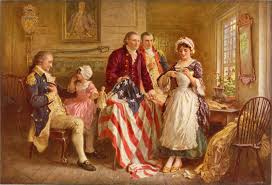
According to historian Joseph Ellis, these letters indicated her resilient and intellectual personality. In these letters, she highlighted the need for women empowerment in the eighteenth century United States and abolition of Slavery, which she considered an evil that tarnished the American democratic model. Her correspondence with her husband on issues of politics and governance through letters is the most documented of all the First ladies. She was the first Second Lady and second First Lady of the United States. She was also the mother of John Quincy Adams, the sixth President of the United States. (Introduction by Sue Anderson)Ībigail’s letters, letters of "a vigorous mind," are a fascinating read.Abigail Adams was the wife and confidante of the second President of the United States, John Adams. " The women "then opened the warehouse, hoisted out the coffee themselves, put it into the truck and drove off.A large concourse of men stood amazed, silent spectators of the whole transaction."Ībigail’s letters, letters of "a vigorous mind," are a fascinating read. Upon which, one of them seized him by his neck. assembled with a cart and trucks, marched down to the warehouse, and demanded the keys, which he refused to deliver. An eminent, wealthy, stingy merchant had a hogshead of coffee in his store, which he refused to sell. " And she enlivened her writing with pithy accounts of Revolutionary doings: July 31, 1777, "You must know that there is a great scarcity of sugar and coffee. I consider it as a sacrifice to my country. The unfeeling world may consider it in what light they please. The constant roar of the cannon is so distressing, that we cannot eat, drink, or sleep." Yet, she displayed constant fortitude: August 5, 1777, "It is almost thirteen years since we were united, but not more than half that time have we had the happiness of living together. Writing to her husband, Abigail expressed anguish at nearby fighting: June 18, 1775, "Charlestown is laid in ashes. for years at a time? It's all there in her private letters, letters that were never meant for public eyes, letters that she repeatedly asked to be burned! What was it like to hear the cannon's roar from your window? to face pestilence? food shortages? rampant inflation? devalued coinage? to raise four children alone-and earn the money to keep your household afloat, while your husband was engaged in politics and diplomacy miles and oceans away.

Her family correspondence, published along with a memoir by her grandson, Charles Francis Adams, brings that era into eloquent focus. Abigail Adams lived the American Revolution as the wife of one of its central figures-John Adams.


 0 kommentar(er)
0 kommentar(er)
